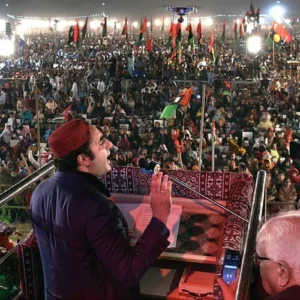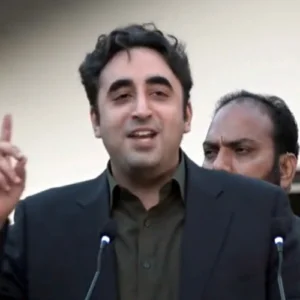Pakistan's political landscape took a fresh turn on Sunday as Bilawal Bhutto-Zardari, chairman of the Pakistan People's Party (PPP), rejected a power-sharing formula floated by the Pakistan Muslim League-Nawaz (PML-N). This development throws a curveball into efforts to form a coalition government after the recent elections.
 The rejected formula reportedly involved sharing the Prime Minister's office between the two parties, with each holding the position for a designated period. However, Bhutto-Zardari declared his party's intention to contest for both the premiership and the presidency, asserting that former president Asif Ali Zardari would be PPP's candidate for the latter position.
The rejected formula reportedly involved sharing the Prime Minister's office between the two parties, with each holding the position for a designated period. However, Bhutto-Zardari declared his party's intention to contest for both the premiership and the presidency, asserting that former president Asif Ali Zardari would be PPP's candidate for the latter position.
This stance reflects the PPP's ambition to lead the next government and potentially revive its political fortunes. While the party secured a respectable number of seats in the recent elections, it fell short of a clear majority, necessitating coalition talks.
PML-N leader Ishaq Dar downplayed the breakdown of the initial formula, suggesting alternative arrangements could be explored. However, Bhutto-Zardari's insistence on contesting both top positions complicates negotiations and raises concerns about potential political gridlock.
Beyond the immediate power struggle, Bhutto-Zardari's move also carries historical significance. He is the son of Benazir Bhutto, a two-time Prime Minister assassinated in 2007. His pursuit of the premiership can be seen as an attempt to reclaim his family's political legacy.
Meanwhile, nominating Asif Ali Zardari for President adds another layer of complexity. Zardari served as president from 2008 to 2013, a period marked by both achievements and controversies. His candidacy could ignite debate and potentially alienate certain segments of the electorate.
Pakistan's political scene remains fluid, with negotiations between various parties ongoing. The PPP's rejection of the initial formula throws a wrench into the works, but it also opens the door for alternative power-sharing arrangements. However, the path towards forming a stable government is fraught with challenges, and the country's future political trajectory remains uncertain.

